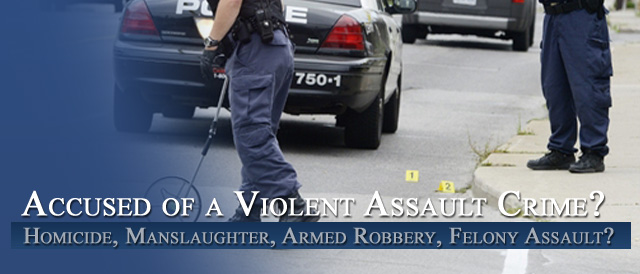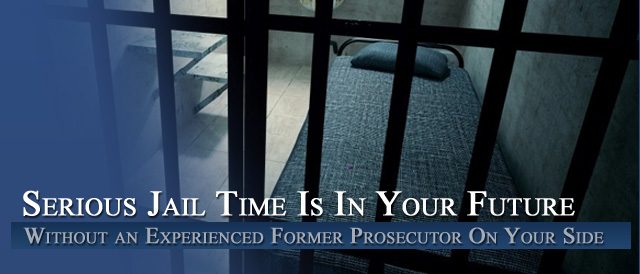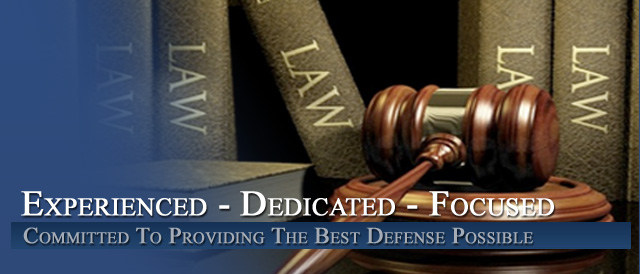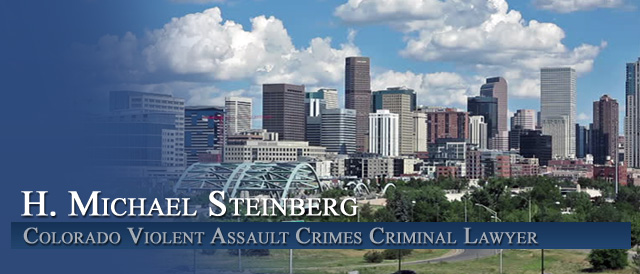





Is PTSD A Defense To Violent & Other Crimes Under Colorado Law?
By H. Michael Steinberg Colorado Violent Assault Crimes Criminal Defense Lawyer
Is PTSD A Defense To Violent & Other Crimes Under Colorado Law? – The complex area of mounting technical defenses to criminal charges in Colorado violent crimes must include an understanding of post traumatic stress disorder.
There has been much research into the area of posttraumatic stress disorder (PTSD). PTSD has been asserted by criminal defense lawyers as a basis for asserting the affirmative criminal defenses of NGRI (not guilty by reason of insanity) as well as defenses bases on unconsciousness defense, self-defense, diminished capacity, and for sentencing mitigation purposes.
According to the National Institute of Mental Health:
“Post-Traumatic Stress Disorder, PTSD:
….is an anxiety disorder that can develop after exposure to a terrifying event or ordeal in which grave physical harm occurred or was threatened. Traumatic events that may trigger PTSD include violent personal assaults, natural or human-caused disasters, accidents, or military combat” (NIMH)
PTSD Criterion – DSMI-IV-TR
A traumatic event is persistently re-experienced in at least one of the following ways:
Recurrent and intrusive thoughts or images
Recurrent distressing dreams
Acting or feeling as if the event were recurring
Psychological distress upon exposure to reminders of event
Physiological reactions upon exposure to reminders of event
(National Center for Post-Traumatic Stress Disorder (2009) What is PTSD?)
Is PTSD A Viable Defense In A Colorado Criminal Case?
While the criminal courts most often find that PTSD is admissible evidence and is “scientifically reliable,” they may reject it in a given case based on the use of the defense in that case. That means that PTSD testimony may be found to be irrelevant and inadmissible to assert its application in a specific case. This happens when the expert testimony offered to show how PTSD has met the standard for a defense, such as self defense, but fails to meet the standards set out by the Judge as a “complete defense.” It is in these situations that PTSD can STILL BE USED as a “partial defense” or even a “mitigating circumstance” in the context of plea bargaining or at sentencing.
PTSD As A Valid Diagnosis
In 1980 the Diagnostic and Statistical Manual of Mental Disorders, Third Edition (DSMIII), formally recognized PTSD as a diagnosis. When that happened criminal defense lawyers began asserting the diagnosis as a basis to defend violent and nonviolent crimes. As of 2016 – other variations of the PTSD diagnosis such as the “battered wife syndrome” and the “battered-child syndrome” have also been recognized to explain and mitigate criminal acts.
Colorado’s Evidenciary Hurdles To The PTSD Defense – Not Guilty By Reason Of Insanity
Before A Colorado Court permits the assertion of PTSD as a defense in a criminal case, state law requires that a plea of not guilty by reason of insanity be entered. This requirement creates a substantial hurdle to the success of the defense
What follows is Colorado law defining insanity:
Insanity Defined– Offenses Committed C.R.S. 16-8-101.5
(1) The applicable test of insanity shall be:
(a) A person who is so diseased or defective in mind at the time of the commission of the act as to be incapable of distinguishing right from wrong with respect to that act is not accountable; except that care should be taken not to confuse such mental disease or defect with moral obliquity, mental depravity, or passion growing out of anger, revenge, hatred, or other motives and kindred evil conditions, for, when the act is induced by any of these causes, the person is accountable to the law;
or
(b) A person who suffered from a condition of mind caused by mental disease or defect that prevented the person from forming a culpable mental state that is an essential element of a crime charged, but care should be taken not to confuse such mental disease or defect with moral obliquity, mental depravity, or passion growing out of anger, revenge, hatred, or other motives and kindred evil conditions because, when the act is induced by any of these causes, the person is accountable to the law.
(2) As used in subsection (1) of this section:
(a) “Diseased or defective in mind” does not refer to an abnormality manifested only by repeated criminal or otherwise antisocial conduct.
(b) “Mental disease or defect” includes only those severely abnormal mental conditions that grossly and demonstrably impair a person’s perception or understanding of reality and that are not attributable to the voluntary ingestion of alcohol or any other psychoactive substance but does not include an abnormality manifested only by repeated criminal or otherwise antisocial conduct.
(3) This section shall apply to offenses committed on or after July 1, 1995.”
When the accused enters a plea of Not Guilty By Reason Of Insanity (NGRI), he is essentially admitting he committed the alleged crime but should not be held criminally responsible because of his mental state.
Two Separate Tests For Insanity
Under Colorado there are two separate tests to be found insane and not legally responsible for the crime charges (see 16-8-101.5 (a) and (b). A Colorado criminal Defendant need only need meet the criteria for one of the tests to be considered insane.
Test One – Colorado Insanity Defined
Summary – Section 16-8-101.5(1)(a):
“A person who is so diseased or defective in mind at the time of the commission of the act as to be incapable of distinguishing right from wrong with respect to the act is not accountable”
The diseased or defective mind cannot be caused by “moral obliquity or moral depravity”( most often this is referred to as “a personality disorder” such as Antisocial Personality Disorder or Psychopathy.
The diseased or defective mind cannot be caused by “passion growing out of anger, revenge, hatred, or other motives and kindred evil conditions” ( A “crime of passion”).
A diseased or defective in mind cannot be caused by “antisocial behavior or repeated criminal conduct”
Test Two – Colorado Insanity Defined
The Second way to be found insane under Colorado criminal law is 16-8-101.5(1)(b):
“A person who suffered from a condition of mind caused by mental disease or defect that prevented the person from forming a culpable mental state that is an essential element of a crime charged” cannot be held criminally responsible.
A mental disease or defect “includes only those severely abnormal mental conditions that grossly and demonstrably impair a person’s perception or understanding of reality” (C.R.S. § 16-8-101.5(2)(b) (examples include such mental diseases as Schizophrenia or Schizoaffective Disorder).
Quick Note: Mental Disease Cannot Be Caused By The Voluntary Ingestion Of Alcohol Or Drugs
What is well understood by lawyers, but not the general public, is that if a person commits a crime while he or she is “black-out drunk” that person is still held criminally responsible, EVEN IF they may not have known what he or she was doing at the time. On th other hand if that same person is drugged involuntarily the opposite is true and they are not criminally responsible.
Quick Note: NGRI In Colorado Is An Affirmative Defense
In Colorado a plea of NGRI is an affirmative defense. An affirmative defense is a defense raised by the defense and, if it is successful at trial it NULLIFIES the legal consequences of an otherwise illegal action (16-8-104.5).
Once an affirmative defense is successfully raised, Colorado law places the burden of proof – that is disproving the affirmative defense on the State – on the prosecutor to prove the accused is sane beyond a reasonable doubt (16-8-105.5(2)).
The Downside Of A Successful NGRI Verdict
if a jury finds the Defendant NGRI, that person is not released. They are immediately remanded to the Department of Human Services (The Colorado Mental Health Institute at Pueblo, or CMHIP, for treatment. That person may be kept at Pueblo indefinitely (anywhere from one day to the rest of his life). If at some point the hospital believes that the person “is no longer a danger to himself, others, or the community for the foreseeable future (C.R.S. § 16-8-116), there is a release hearing where the Defendant the must meet the “test of eligibility for release” – the ability to distinguish between right and wrong and the capacity to live in such a way that he is not breaking the law to conform his behavior to the requirements of the law.
The State of Colorado Will Defend A Diagnoses Of PTSD With Claims That The Defendant Has “APD” – Antisocial Personality Disorder
It is common for the prosecution – to counter a claim of PTSD – to present an expert (psychiatrist) to testify that a Defendant does not suffer from PTSD but rather suffers from APD – Anti-Personality Disorder.
While a Defendant has a constitutional right to present his or her defense, a Trial Judge has substantial discretion in deciding questions concerning the admissibility of evidence, and its evidentiary rulings. To “rebut” the assertion of an insanity defense based on PTSD, the prosecution is allowed to offer evidence such as evidence of the alleged existence of Anti-Personality Disorder as an “alternative explanation” to PTSD for a Defendant’s behavior.
Using PTSD In The Colorado Criminal Justice System
PTSD phenomena such as dissociative flashbacks, hyperarousal symptoms, survivor guilt, and sensation-seeking behaviors are all supported in the medical literature. The use of this evidence as a basis for an NGRI plea (above) is clear. What is less common is the same evidence – PTSD – that is used in other ways to defend a person accused with a Colorado crime.
PTSD And An “Unconsciousness Defense”
One type of PTSD evidence is called the “unconsciousness” defense. To be found guilty of most crimes – two things need to come together – a mental state (the mens rea) and the volitional act (the actus reus) The unconsciousness defense arising out of PTSD asserts that the Defendant was not conscious during the commission of the criminal act and therefore prong 2 required for the commission of a crime – the actus reus – the voluntary act – cannot be met.
In Colorado PTSD Can Be Used In Some Instances To Establish Self-Defense
PTSD and it’s related “syndromes’can also be utilized to assert the affirmative defense of self defense.
The elements of a claim of self defense (see Colorado’s self defense statute below) have many components to include:
1. The Defendant was not the aggressor,
2. The Defendant reasonably feared imminent death or great bodily harm that necessitated the use of force to save his life,
3. The amount of force used by the Defendant was reasonably necessary to avert the danger and was not more than the situation required.
What follows is Colorado’s self defense statute – 18-1-704
§ 18-1-704. Use of Physical Force in Defense of a Person
(1) Except as provided in subsections (2) and (3) of this section, a person is justified in using physical force upon another person in order to defend himself or a third person from what he reasonably believes to be the use or imminent use of unlawful physical force by that other person, and he may use a degree of force which he reasonably believes to be necessary for that purpose.
(2) Deadly physical force may be used only if a person reasonably believes a lesser degree of force is inadequate and:
(a) The actor has reasonable ground to believe, and does believe, that he or another person is in imminent danger of being killed or of receiving great bodily injury; or
(b) The other person is using or reasonably appears about to use physical force against an occupant of a dwelling or business establishment while committing or attempting to commit burglary as defined in sections 18-4-202 to 18-4-204 ; or
(c) The other person is committing or reasonably appears about to commit kidnapping as defined in section 18-3-301 or 18-3-302, robbery as defined in section 18-4-301 or 18-4-302, sexual assault as set forth in section 18-3-402, or in section 18-3-403 as it existed prior to July 1, 2000, or assault as defined in sections 18-3-202 and 18-3-203.
(3) Notwithstanding the provisions of subsection (1) of this section, a person is not justified in using physical force if:
(a) With intent to cause bodily injury or death to another person, he provokes the use of unlawful physical force by that other person; or
(b) He is the initial aggressor; except that his use of physical force upon another person under the circumstances is justifiable if he withdraws from the encounter and effectively communicates to the other person his intent to do so, but the latter nevertheless continues or threatens the use of unlawful physical force; or
(c) The physical force involved is the product of a combat by agreement not specifically authorized by law.
…
PTSD can impact the reasonable belief element of self defense. A Defendant suffering from PTSD such as in the form of the battered woman’s syndrome might believe that she was in imminent danger and was therefore compelled to act.
A person is entitled to act on appearances when exercising self-defense: a reasonable belief that you are in danger entitles you to defend yourself, even to the extent of taking human life, even though it may later turn out that you were mistaken about the danger.
PTSD is commonly accepted in the mental health community and expert testimony
on PTSD syndromes such as the battered woman’s syndrome is admitted and admissible in the Colorado courts.
In Colorado PTSD Can Be Used As A “Mitigating Circumstance”
Mental illness is ALWAYS a important for a Judge to consider as a sentence “mitigator.”
While the difficulties – outlined above – in entering and succeeding at trial with an NGRI defense may be true in Colorado – PTSD can play a role at sentencing to help lessen or “mitigate” the sentence – essentially resulting in a reduction in sentencing.
Finally – such common PTSD conditions as:
hyperarousal symptoms,
impaired impulse control,
overestimation of danger, and
dissociative phenomena
… are relevant where than can be a direct “connection” between PTSD and the offense charged. These are argued at sentencing to help explain – not as a complete defense – but to help a Sentencing Judge understand why the Defendant acted as he or she did.
Is PTSD A Defense To Violent & Other Crimes Under Colorado Law?
If you found any of the information I have provided on this web page article helpful please click my Plus+1 or the Share buttons for Twitter and Facebook below so that others may also find it.
If, after reading this article, you have questions about your case and would like to consider retaining our law firm, we invite you to contact us at the Steinberg Colorado Criminal Defense Law Firm – 303-627-7777.
Never stop fighting – never stop believing in yourself and your right to due process of law. You will not be alone in court, H. Michael at your side every step of the way – advocating for justice and the best possible result in your case.
 ABOUT THE AUTHOR: H. Michael Steinberg – Email The Author at [email protected] – A Denver Colorado Criminal Defense Lawyer – or call his office at 303-627-7777 during business hours – or call his cell if you cannot wait and need his immediate assistance – 720-220-2277. Attorney H. Michael Steinberg is passionate about criminal defense. His extensive knowledge and experience of Colorado Criminal Law gives him the edge you need to properly handle your case.
ABOUT THE AUTHOR: H. Michael Steinberg – Email The Author at [email protected] – A Denver Colorado Criminal Defense Lawyer – or call his office at 303-627-7777 during business hours – or call his cell if you cannot wait and need his immediate assistance – 720-220-2277. Attorney H. Michael Steinberg is passionate about criminal defense. His extensive knowledge and experience of Colorado Criminal Law gives him the edge you need to properly handle your case.
“A good criminal defense lawyer is someone who devotes themselves to their client’s case from beginning to end, always realizing that this case is the most important thing in that client’s life.”
You should be careful to make a responsible choice in selecting a Colorado Criminal Defense Lawyer – and we encourage you to “vet” our firm. Over the last 30 plus years – by focusing ONLY on Colorado criminal law – H. Michael has had the necessary time to commit to the task of constantly updating himself on nearly every area of criminal law, to include Colorado criminal law and procedure and trial and courtroom practice. H. Michael works hard to get his clients the best possible results in and out of the courtroom. He has written, and continues to write, extensively on Colorado criminal law and he hopes this article helps you in some small way – Is PTSD A Defense To Violent & Other Crimes Under Colorado Law?














